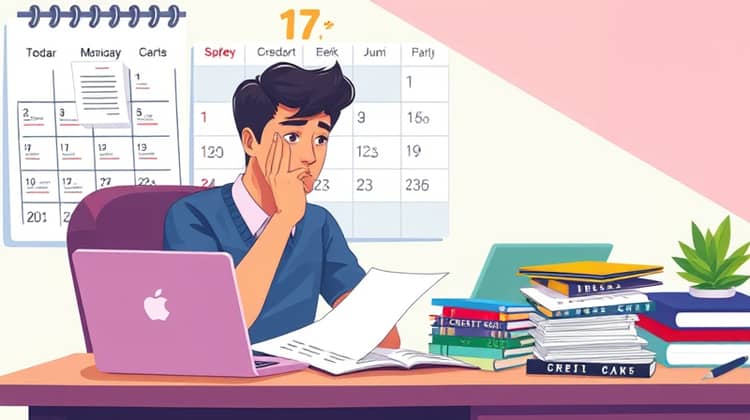Credit Score Boost: 7 Fast Tips to Improve It Right Now

Improving your credit score is essential for your financial health and can lead to better loans, credit cards, and even job opportunities. Credit scores, which range from 300 to 850, are a reflection of your creditworthiness and can be influenced by various factors, including payment history, credit utilization, and credit age.
Fortunately, there are practical steps you can take to boost your credit score quickly. This blog post outlines seven effective strategies that you can implement right now to see an improvement in your credit score. By adopting these tips, you'll be on your way to achieving a healthier credit profile and unlocking greater financial opportunities.
Keep in mind that while these tips can lead to faster results, maintaining good credit is a long-term commitment. Regular monitoring of your credit report and habits can help you avoid pitfalls and continuously improve your financial standing.
Understanding Credit Scores

Credit scores are numeric representations of your creditworthiness and are crucial for loans and credit applications. Lenders use these scores to determine the risk associated with lending money to you. A higher credit score indicates that you are a lower-risk borrower, which can lead to better interest rates and terms on loans and credit cards.
Various factors contribute to your credit score, including payment history, credit utilization, length of credit history, types of credit used, and recent credit inquiries. Understanding these factors will enable you to take corrective measures to enhance your score effectively.
Your payment history is the most significant part of your score, making up roughly 35%. Therefore, keeping your payments on time is vital to maintaining a good credit score. However, many individuals find themselves with a lower score due to missed payments and high credit utilization.
1. Pay Off Late Payments

Late payments can significantly harm your credit score, so prioritizing paying off any overdue accounts is essential. Even if a payment is just a few days late, it can be reported to credit bureaus and negatively impact your score for years. Reducing the number of late payments on your credit report will demonstrate responsibility and improve your creditworthiness.
- Review your credit report for any late payments and prioritize paying those off.
- Once payments are made, consider contacting creditors to request a goodwill adjustment, lowering the impact of the late payment on your report.
- Set up automatic payments or reminders to ensure you don’t miss future due dates.
Consistently making your payments on time can gradually boost your score, highlighting your commitment to financial responsibility.
2. Lower Your Credit Card Balances

High credit card balances can account for a large portion of your credit utilization ratio, which makes up about 30% of your credit score. To improve your score, aim to keep your credit card balances as low as possible relative to your credit limits. A good rule of thumb is to maintain a utilization rate below 30%.
Paying down your credit card balances will not only increase your score but also contribute to better financial health by reducing the interest you'll pay on existing debts.
Focus on paying down cards with the highest interest rates first or consider balance transfers to lower-rate cards, which allows you to tackle debt more effectively.
3. Become an Authorized User

Becoming an authorized user on someone else's credit card can help you improve your credit score. When you are added as an authorized user, the credit card's payment history is reported on your credit report, which can benefit your score if the primary cardholder has a good payment history and low credit utilization. This strategy is especially helpful if you have a limited credit history or are looking to build credit quickly.
Make sure that you have a good relationship with the primary cardholder, and ensure they understand the responsibility of maintaining the account to maximize the benefits it can offer.
4. Dispute Credit Report Errors

Errors on your credit report can unfairly lower your credit score, making it important to review your report regularly for inaccuracies. Common mistakes can include incorrect payment histories, accounts that don't belong to you, or wrongly reported credit limits.
- Request a free credit report from each credit bureau at least once a year.
- Identify any inaccuracies and gather evidence to support your dispute.
- Submit a dispute online or in writing to the credit bureau along with relevant documentation.
Addressing these errors promptly can help you recover lost points and maintain an accurate credit history.
5. Increase Your Credit Limits

One effective strategy for improving your credit score is to increase your credit limits on existing credit cards. A higher credit limit can reduce your overall credit utilization ratio, especially if your spending habits remain constant. This will positively impact your score since it demonstrates responsible management of available credit.
Most issuers may perform a hard inquiry when you request a limit increase, which can temporarily lower your score. However, the long-term benefits often outweigh the short-term impacts. Make sure to request increases strategically and only when necessary.
Another option is to apply for new credit accounts with higher limits, but be cautious as this can also lead to hard inquiries that affect your score in the short term.
Additionally, ensure that you’re keeping your balances low after obtaining these higher limits to maximize the positive effect on your credit score.
6. Avoid New Credit Inquiries

New credit inquiries can negatively affect your credit score, especially if you have several inquiries within a short timeframe. Lenders may view multiple inquiries as a sign of financial distress, suggesting you are taking on more debt than you can handle.
To protect your score, limit your applications for new credit. When you need to borrow or apply for a new credit card, try to do it in a strategic way—such as all at once—so you only incur fewer hard inquiries during that period.
7. Use Experian Boost or Other Services

Services like Experian Boost allow consumers to add on-time utility, phone, and streaming service payments to their credit file. This means that even if you don’t have traditional credit accounts, you can still positively influence your credit score.
These services can be particularly useful for individuals with limited credit history or those looking to enhance their scores quickly. If you’ve consistently paid these bills on time, adding these accounts gives you a better chance of improving your credit score without taking on additional debt.
Tips for Maintaining a Good Credit Score

Once you've successfully improved your credit score, it’s crucial to adopt habits that maintain it. Regularly monitor your credit report to ensure all information is accurate and up to date. Consider setting up alerts for any significant changes to your score, as awareness will allow you to react promptly to any potential issues.
Additionally, keeping your credit accounts open and active while managing debt wisely can provide long-term benefits.
- Pay bills on time without exception.
- Keep credit utilization below 30% at all times.
- Regularly check your credit report for errors and potential fraud.
- Avoid closing old accounts, as this can reduce your credit age.
Maintaining a good credit score is an ongoing process that requires commitment and awareness to achieve long-term financial stability.
Final Thoughts

Improving your credit score doesn't have to be an overwhelming task. With a focused approach using the right strategies, you can make tangible progress in a relatively short amount of time. Each tip outlined in this article can help enhance your credit profile, leading to better financial opportunities and lower borrowing costs.
Remember that building and maintaining a good credit score is a marathon, not a sprint. Stay diligent in monitoring your credit report and practicing healthy financial habits to secure a better financial future. Regular assessments and adjustments are key to navigating changes in your financial landscape effectively.
Lastly, take action now. The sooner you start applying these tips, the sooner you can notice improvements in your credit score, unlocking potential savings and opportunities in the future.






